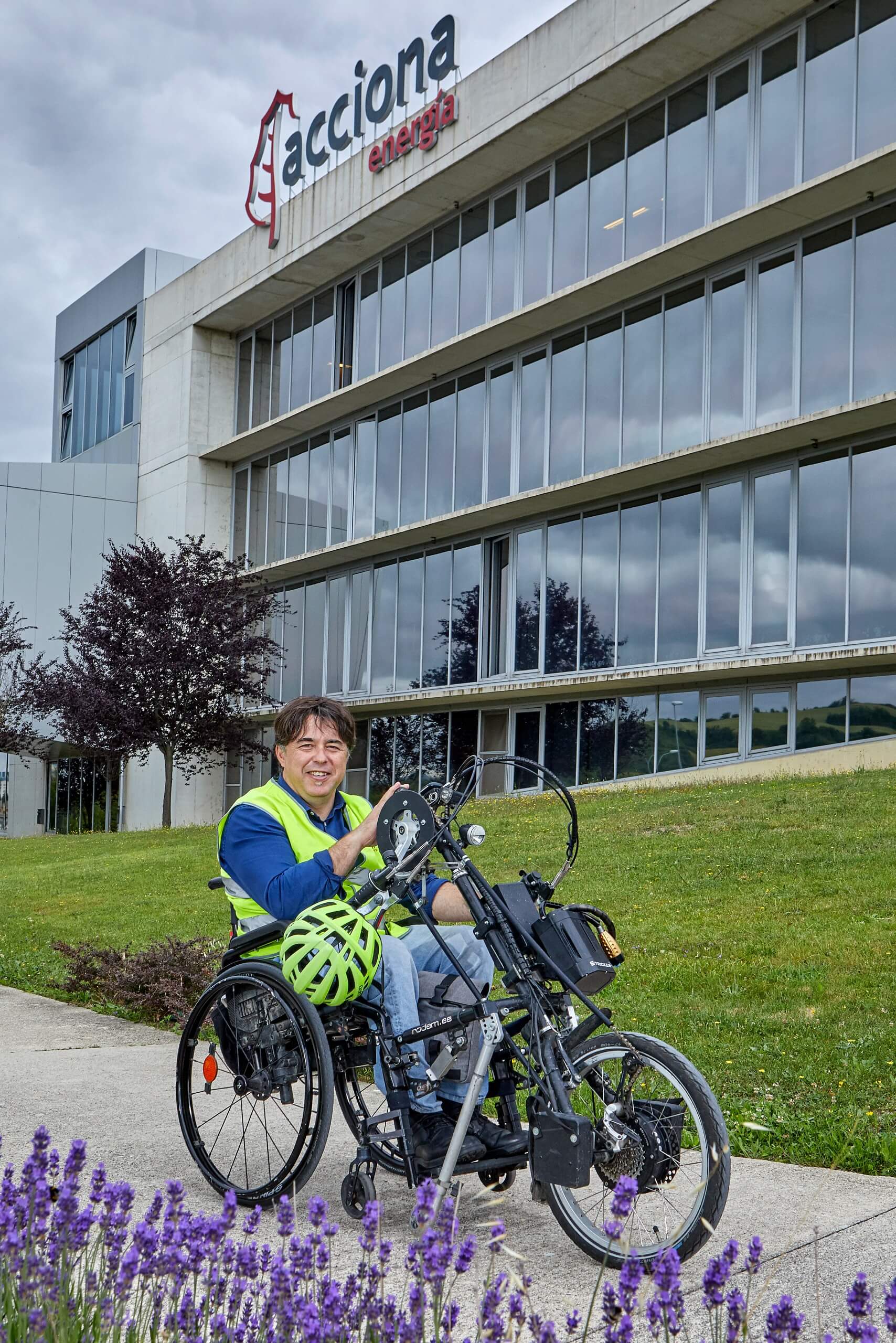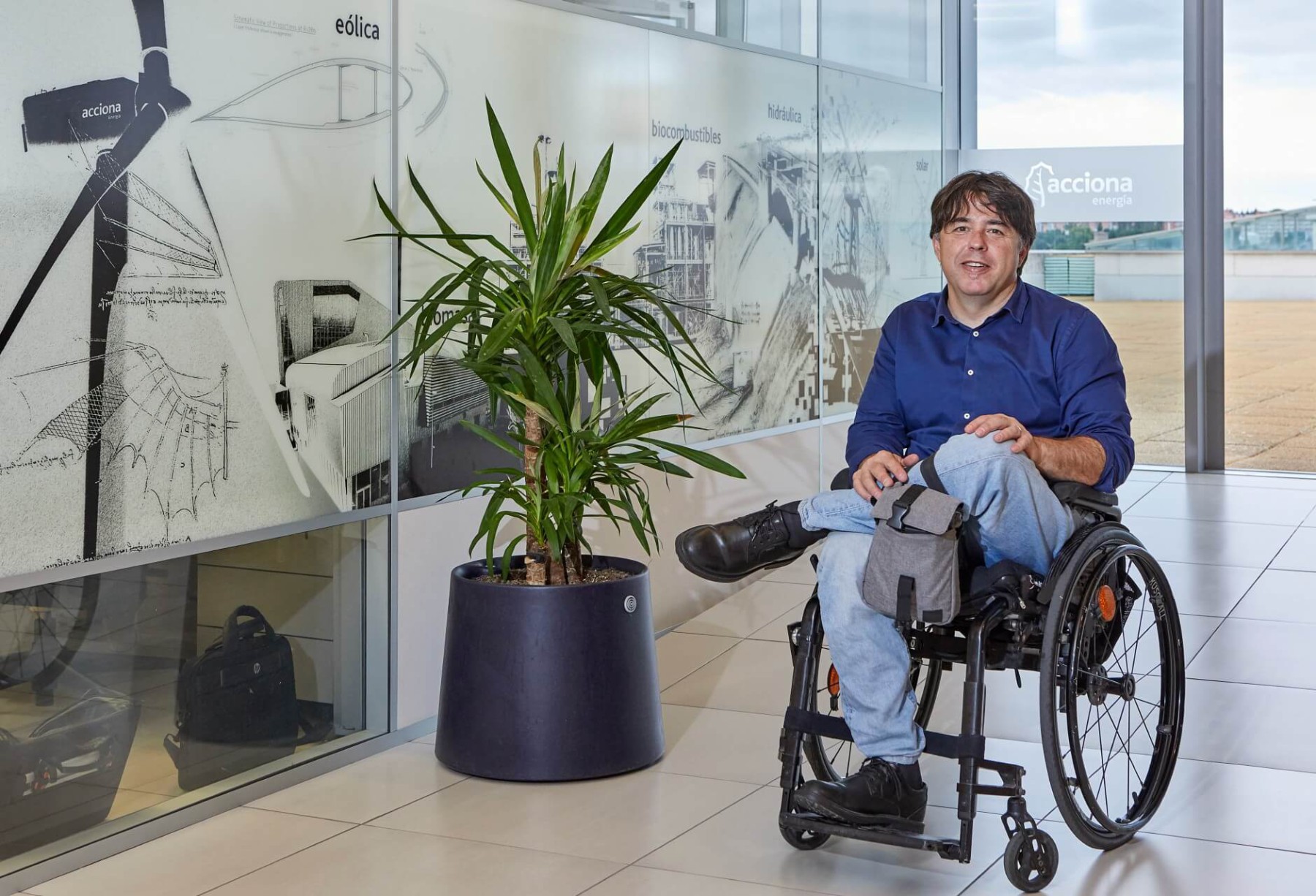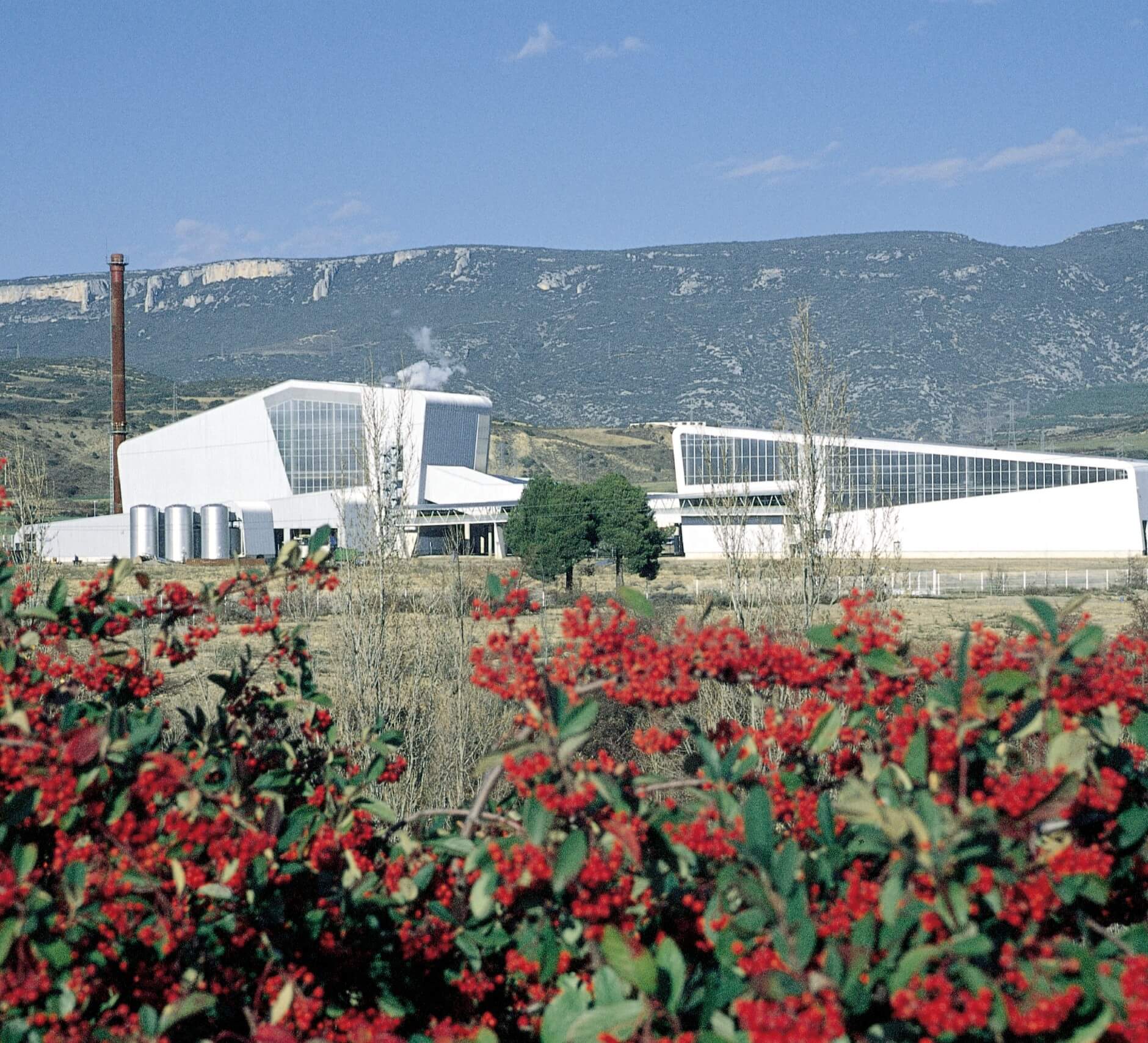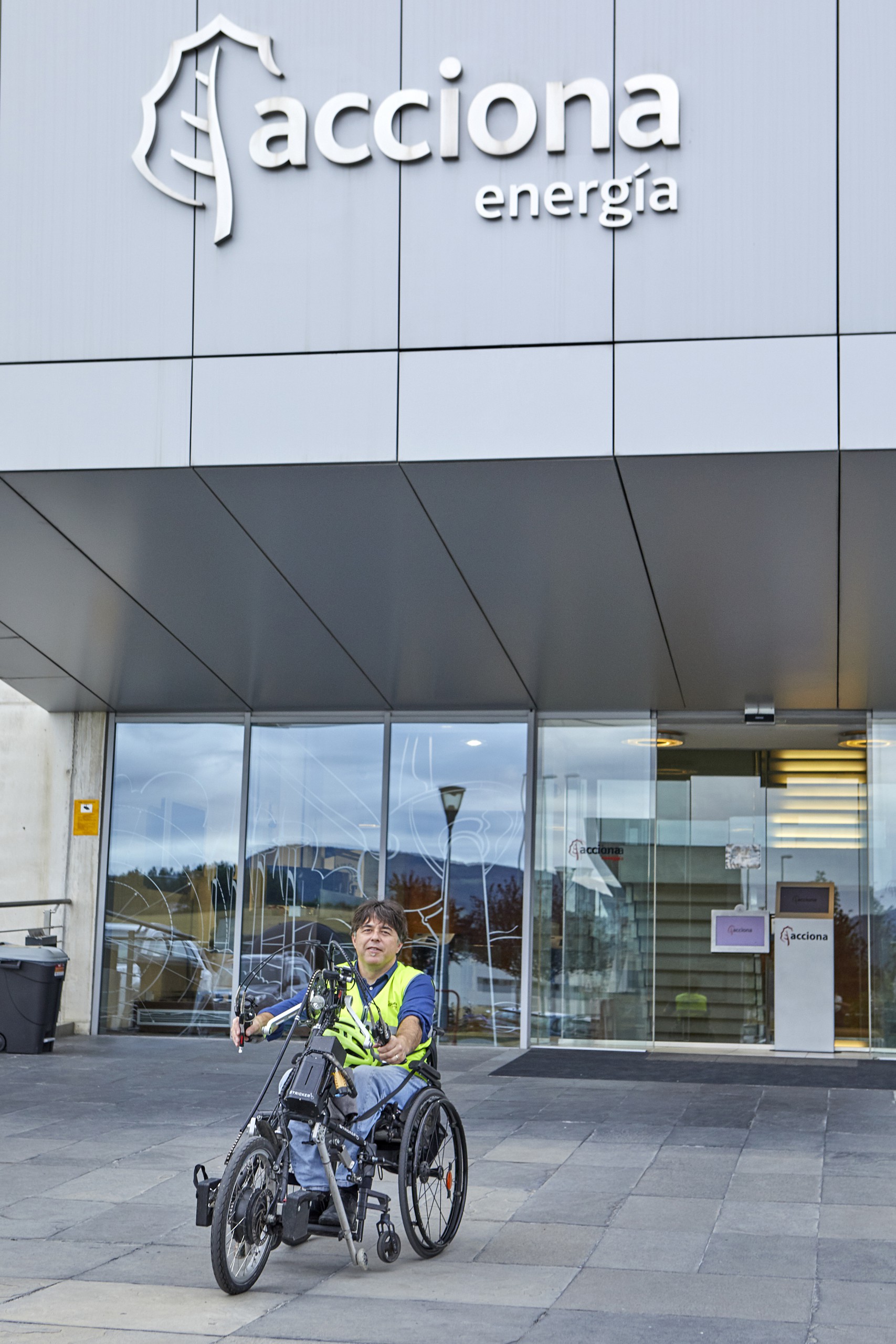An unexpected tragedy and a leap into renewable energy
As in the case of Elena Navarro, another engineer at ACCIONA, Fredi had a clear aspiration from a young age—to become a civil engineer, or as he used to say as a kid, a “road repairman.” Inspired by a relative, his uncle, he embarked on a path leading him from his hometown of Pamplona to the city of Santander. His journey appeared to align with the fulfillment of his dreams seamlessly. However, life, messy and bewildering as it sometimes can be, had different plans for him. However, during his third year, an unforeseen setback emerged, compelling him to return to the capital of Navarre.
Plautus, the Roman playwright, captured a timeless truth over two thousand years ago with the phrase, “Nomen est omen,” which translates to “the name is destiny.” The second surname of our interviewee is Mendiburu, which in Basque language means “mountain head” or “mountain top.” Both Fredi and his father always shared a deep-rooted passion for mountains and the wonders of nature. In fact, Fredi’s adventurous spirit led him to adventurous activities such as ice climbing, bivouacking at dizzying heights of three thousand meters, and conquering the peaks of the Moroccan Atlas, all while he was still in his twenties.
The Pyrenees have always held a special place in his family’s heart. Fredi humbly recounts how a picturesque corner in the Pyrenean mountains became the backdrop for his most haunting nightmare, “one of the two great blows I have endured in my life.”
“[Ordesa] is a privileged place that we knew perfectly. My father, without a doubt, was the epitome of safety and caution when venturing into the mountains. Then, suddenly, one day he had gone up with some friends, and it turned out that he didn’t come down, and we kept waiting. Something stirred within my mother, perhaps a subtle intuition or unexplainable vibrations that science has yet to comprehend—telepathy or mysterious forces of connection. The fact is that my father lost his life in Ordesa, in the place he loved the most.” It was 1993, and Fredi’s world had changed forever.
Inevitably, that unexpected blow made him change course. He found himself compelled to return to Pamplona, assuming the responsibility of supporting his mother. With this shift in city, a corresponding shift in his career ensued: he embraced the path of an agricultural engineer. Upon completing his degree, he further honed his expertise through a specialized Land Management and Environment course. It was during this time that the foundational concepts, which would shape his professional journey, began to take root and accompany him throughout his entire career.
“If effectively managing water is the way to go, it turns out that the same principle applies to energy—it needs to be sustainable too. That’s when I discovered the whole world of energy.”



